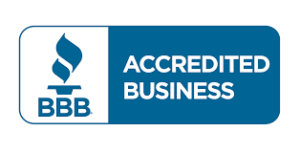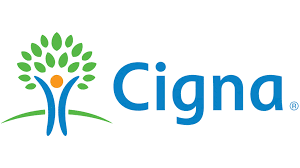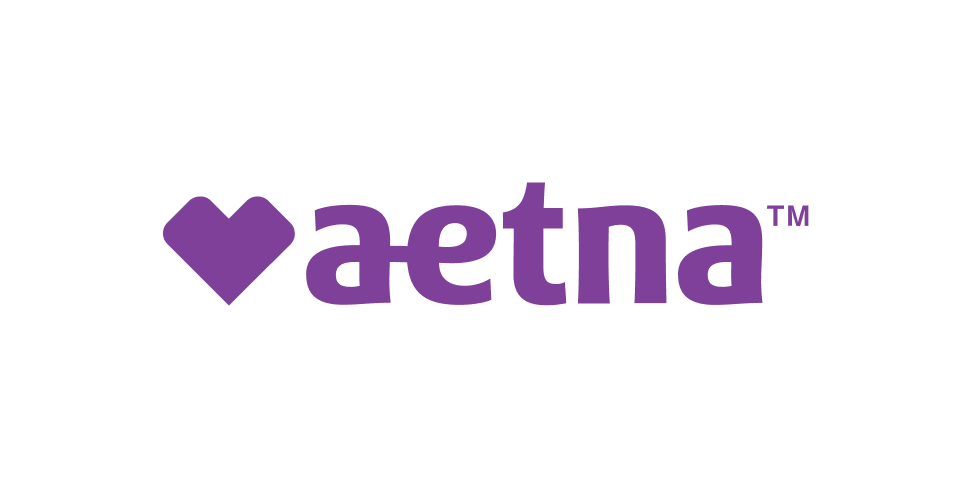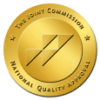Alcohol Detox in Tennessee

Facing the challenges of alcohol detox in Tennessee can feel overwhelming. Many struggle with the physical and emotional toll that comes with addiction, making the journey to recovery seem daunting. But you don’t have to navigate this path alone.
At Tennessee Detox Center, located in Tennessee, we offer a compassionate solution tailored to your needs. Our upscale drug rehabilitation services include medical supervision, counseling, and holistic therapies designed to support your recovery. With a dedicated team of professionals, we focus on creating a safe environment where you can heal and regain control of your life.
When it comes to alcohol treatment in Tennessee residents should know that getting help is crucial, and the benefits are life-changing. Embracing recovery not only improves your health but also enhances your relationships and overall well-being. Take the first step towards a brighter future today.

What Is Alcohol Detox?
Alcohol detoxification, or alcohol detox, is the process of removing alcohol from your body after prolonged use. This stage is crucial for anyone looking to recover from alcohol addiction, as it helps manage withdrawal symptoms while allowing the body to regain stability.
Most alcohol treatment centers in Tennessee will recommend clients go through the detox process before inpatient or outpatient treatment. This is because the alcohol detoxification process can lead to serious and even life-threatening complications such as seizures, delirium tremens, high blood pressure, and other symptoms.
The Role of Alcohol Detox in Recovery
Alcohol detox serves as the first step in the journey of recovery. It plays a vital role by
-
Clearing toxins:
Alcohol detox effectively eliminates harmful substances and promotes physical healing. Before beginning alcohol rehabilitation Tennessee residents need to clear any toxins ahead of time. -
Managing withdrawal:
Professional supervision during detox ensures that withdrawal symptoms are addressed promptly. Withdrawal symptoms can be incredibly painful and even fatal, which is why our luxury drug rehab has a team of medical professionals to manage symptoms before they lead to complications. -
Preparing for treatment:
Detox prepares you for subsequent phases of recovery, increasing the likelihood of success in long-term rehabilitation. Tennessee Detox Center is one of the best Nashville alcohol rehab centers that provides both detox and inpatient treatment services, making it easier for you to continue care. -
Establishing support:
A supportive environment during detox helps you feel cared for and understood, setting a positive tone for your recovery journey. Our luxury rehab retreat is with you every step of the way offering catered meals, a beautiful cozy home setting, and 24/7 care from addiction treatment specialists.
Choosing an experienced facility, like Tennessee Detox Center, ensures that you receive comprehensive care tailored to your needs.
Your journey toward healing begins today.
What are Some Alcohol Addiction Statistics in Tennessee?

Alcohol Use Disorder (AUD) remains a significant public health concern across Tennessee. Recent data indicates that approximately 10% of adults in the state meet the criteria for AUD, reflecting persistent challenges in addressing alcohol misuse among the adult population.
The impact of alcohol misuse is also evident among Tennessee’s youth. In 2023, about 105,000 individuals aged 12 to 20 reported past-month alcohol use, with 61,000 engaging in binge drinking. Alarmingly, alcohol-related hospital admissions for youth aged 10 to 20 increased by 49.4% from 2020 to 2023.
The consequences of alcohol misuse are further underscored by mortality data. Tennessee experienced 1,164 alcohol-attributable deaths in 2023, marking a 24.3% increase since 2019. These figures highlight the urgent need for effective prevention and treatment strategies.
At Tennessee Detox Center, we address this crisis by offering comprehensive treatment programs aimed at reducing the long-term health complications and fatalities associated with alcohol misuse.

What Is Included in Treatment for Alcohol Use Disorder in Tennessee?
AUD presents a multifaceted challenge in Nashville, combining physical, psychological, and emotional dimensions of alcohol dependence. Comprehensive treatment programs are essential and include detoxification, counseling, therapy sessions, medication management, and support groups.
Tennessee Detox Center recognizes the complexities of AUD and provides tailored solutions to address individual needs, promoting a better path to recovery. Our alcohol treatment in Tennessee includes both inpatient detox and inpatient rehab, as well as outpatient services.
We can provide transportation to intensive outpatient or partial hospitalization programs. Our goal is to provide a full continuum of care, which is why we focus on aftercare services after you complete your stay at our private luxury rehab.

What Are the Local Impacts of Alcohol Abuse on Families and Communities?
The consequences of alcohol abuse ripple through families and communities in Nashville. Families experience strained relationships, emotional turmoil, and financial difficulties due to a loved one’s addiction. Communities face increased healthcare costs, public safety issues, and disrupted social structures stemming from alcohol-related problems.
By choosing Tennessee Detox Center for alcohol detox, individuals can begin to heal not only themselves but also restore harmony within their families and contribute positively to their communities. We know that family support, problem-solving, and working together as a team can increase your chances of life-long sobriety. That’s why our alcohol rehab in Tennessee also provides family therapy through weekly sessions and family workshops.
How Does Alcohol Detox at Tennessee Detox Center Work?
Alcohol detox at Tennessee Detox Center follows a structured and medically supervised process designed for your safety and comfort. Our luxury alcohol rehab caters to your every need, from providing private rooms and 24/7 medical supervision. Here’s a look at what we offer.
-
What is the Medical Detox Process?
The detox process begins with a thorough diagnosis and assessment. This initial step involves a physical examination to evaluate your health. Healthcare professionals identify potential health concerns that may affect the detox, including changes in blood pressure, heart rate, shakiness, and more. Tailored treatment plans aim to effectively manage withdrawal symptoms while ensuring your comfort.
Our luxury addiction treatment rehab uses bloodwork, personalized treatment plans, and personal interviews to help you feel at ease. You’ll understand just how your health is being impacted by your drinking, and what you can expect to feel during the withdrawal process. We’ll also discuss treatment options including medications and counseling to help get you through this tough beginning stage of addiction treatment.
Our luxury addiction treatment rehab uses bloodwork, personalized treatment plans, and personal interviews to help you feel at ease. You’ll understand just how your health is being impacted by your drinking, and what you can expect to feel during the withdrawal process. We’ll also discuss treatment options including medications and counseling to help get you through this tough beginning stage of addiction treatment.
-
What Can I Expect During Admission and Preparation?
When preparing for admission, bring essential items like clothing and personal hygiene products. Prohibited items include weapons, drugs, and alcohol, ensuring a safe environment. Discuss special dietary needs with the staff prior to arrival to ensure your nutritional requirements are met during detox.
Our high-status rehabilitation facilities provide healthy catered meals to help you gain back your energy and nutrients during detox. We also provide luxury accommodations including memory foam mattresses, flat-screen TVs, and cleaning services. By choosing Tennessee Detox Center for alcohol detox in Nashville, you engage in a comprehensive program designed to support your journey to recovery.
Our high-status rehabilitation facilities provide healthy catered meals to help you gain back your energy and nutrients during detox. We also provide luxury accommodations including memory foam mattresses, flat-screen TVs, and cleaning services. By choosing Tennessee Detox Center for alcohol detox in Nashville, you engage in a comprehensive program designed to support your journey to recovery.
What Our Patients Say: Stories of Hope and Recovery
Hear directly from those who have walked the path to recovery. Our patients’ stories highlight the compassionate care, effective programs, and life-changing support they’ve experienced. Let their journeys inspire you as you take your first steps toward healing.
The facility itself is clean, well-maintained, and equipped with all the necessary amenities to provide a serene and supportive environment.
What truly stands out is the personalized approach to care. The team developed a treatment plan tailored to my specific needs, incorporating both medical and holistic therapies. This comprehensive approach not only addressed my physical withdrawal symptoms but also supported my mental and emotional well-being.
The counselors and therapists offer a range of therapies that helped me understand the root causes of my addiction and develop effective coping strategies. Group therapy sessions provided a safe space to share experiences and gain insights from others on similar journeys.
Overall, my experience with this medical detox program was life-changing. The compassionate and skilled staff, combined with the personalized treatment approach, provided me with the foundation I needed for a successful recovery. I highly recommend this facility to anyone seeking a safe and supportive environment for detox and recovery.
But it's the people who make this place truly special. The staff, they've been there, they understand the struggle. No judgment, just support, encouragement, and a genuine desire to help you heal. They treated me like an old friend, even though I was just visiting for my buddy.
They've got a whole range of therapies to help you on your journey – individual counseling, group sessions, and even a fitness center to get you moving again. It's not just about detox. It's about rebuilding your life from the ground up.
My friend, the owner, he's living proof that this place works. He poured his heart into creating a haven for those seeking recovery, and his passion shines through in every detail.
So, if you're ready to take that first step, this is the place. Trust me, they'll walk beside you every step of the way.
Why Choose Tennessee Detox Center?


How Can Tennessee Detox Center Help My Commitment to Long-Term Sobriety?
Tennessee Detox Center is committed to your long-term sobriety. Focusing on relapse prevention strategies, the center equips you with vital tools for maintaining a sober lifestyle. Education on addiction, coping mechanisms, and support group integration play a critical role in this commitment.
Additionally, the center offers continuous follow-up support even after completing detox, ensuring that your recovery journey continues with stability and strength. You can choose to stay at our luxury inpatient rehab immediately following detox. Or, we can help you find a suitable PHP or outpatient program for flexible addiction treatment. This dedication to long-term care helps you build a strong foundation for sustained recovery.
What is Holistic Therapy and Support?
Tennessee Detox Center emphasizes holistic therapy, integrating physical, emotional, and spiritual healing into your recovery journey. This method combines traditional medical treatments with alternative therapies, providing you with a well-rounded approach. Programs include mindfulness practices, art therapy, yoga, and counseling. These therapies foster emotional well-being, reduce stress, and enhance your overall recovery experience.
Their inclusion in our addiction treatment makes us one of the best premium alcohol rehabilitation programs in the area. Each individual’s path to recovery receives personalized attention, ensuring that you receive the support needed for effective healing.

Safety and Medical Supervision

Management of Withdrawal Symptoms
-
Addiction Group. (n.d.). Tennessee drug and alcohol statistics. Retrieved July 28, 2025, from https://www.addictiongroup.org/tennessee/drug-statistics/
-
Substance Abuse and Mental Health Services Administration (SAMHSA). (2023). 2023 ICCPUD state report: Underage drinking prevention – Tennessee. U.S. Department of Health and Human Services. Retrieved from https://library.samhsa.gov/sites/default/files/tennessee-iccpud-state-report-2023.pdf
-
Tennessee Alcoholic Beverage Commission. (2024). Report to prevent underage drinking, drunk driving, and other harmful uses of alcohol (PC 961). State of Tennessee. Retrieved from https://www.tn.gov/content/dam/tn/abc-documents/abc-documents/PC-961-2024-Report-to-Prevent-Underage-Drinking-Drunk-driving-and-Other-Harmful-Uses-of-Alcohol.pdf
-
National Institute on Alcohol Abuse and Alcoholism (NIAAA). (2012). Alcohol withdrawal syndrome. In S. C. Merrill & B. S. Frances (Eds.), The management of alcohol use disorders: A practical guide for clinicians (NIH Publication No. 12–5191). National Center for Biotechnology Information. Retrieved from https://www.ncbi.nlm.nih.gov/books/NBK64119/

Medically Reviewed By:
Dr. Vahid Osman, M.D.Board-Certified Psychiatrist and Addictionologist
Dr. Vahid Osman is a Board-Certified Psychiatrist and Addictionologist who has extensive experience in skillfully treating patients with mental illness, chemical dependency and developmental disorders. Dr. Osman has trained in Psychiatry in France and in Austin, Texas. Read more.
The Joint Commission – The Gold Seal of Approval® signifies that Tennessee Detox Center meets or exceeds rigorous performance standards in patient care, safety, and quality. It reflects a commitment to continuous improvement and clinical excellence.

LegitScript Certified – Confirms that Tennessee Detox Center operates in full compliance with laws and regulations, and meets high standards for transparency and accountability in addiction treatment marketing.

BBB Accredited – Demonstrates ethical business practices, commitment to customer satisfaction, and a trusted reputation within the community.
Psychology Today Verified – Indicates that Tennessee Detox Center is listed on Psychology Today, a trusted directory for verified mental health providers and treatment centers.
HIPAA Compliant – Ensures all patient health information (PHI) is protected and managed in accordance with strict federal privacy and data security standards.
ASAM Member – Tennessee Detox Center is a proud member of the American Society of Addiction Medicine (ASAM), reflecting a commitment to science-driven and evidence-based treatment standards.

Rutherford County Chamber of Commerce – Membership signifies active participation in the local community and support for regional growth and civic collaboration.
-
Addiction Group. (n.d.). Tennessee drug and alcohol statistics. Retrieved July 28, 2025, from https://www.addictiongroup.org/tennessee/drug-statistics/
-
Substance Abuse and Mental Health Services Administration (SAMHSA). (2023). 2023 ICCPUD state report: Underage drinking prevention – Tennessee. U.S. Department of Health and Human Services. Retrieved from https://library.samhsa.gov/sites/default/files/tennessee-iccpud-state-report-2023.pdf
-
Tennessee Alcoholic Beverage Commission. (2024). Report to prevent underage drinking, drunk driving, and other harmful uses of alcohol (PC 961). State of Tennessee. Retrieved from https://www.tn.gov/content/dam/tn/abc-documents/abc-documents/PC-961-2024-Report-to-Prevent-Underage-Drinking-Drunk-driving-and-Other-Harmful-Uses-of-Alcohol.pdf
-
National Institute on Alcohol Abuse and Alcoholism (NIAAA). (2012). Alcohol withdrawal syndrome. In S. C. Merrill & B. S. Frances (Eds.), The management of alcohol use disorders: A practical guide for clinicians (NIH Publication No. 12–5191). National Center for Biotechnology Information. Retrieved from https://www.ncbi.nlm.nih.gov/books/NBK64119/

Medically Reviewed By:
Dr. Vahid Osman, M.D.Board-Certified Psychiatrist and Addictionologist
Dr. Vahid Osman is a Board-Certified Psychiatrist and Addictionologist who has extensive experience in skillfully treating patients with mental illness, chemical dependency and developmental disorders. Dr. Osman has trained in Psychiatry in France and in Austin, Texas. Read more.
The Joint Commission – The Gold Seal of Approval® signifies that Tennessee Detox Center meets or exceeds rigorous performance standards in patient care, safety, and quality. It reflects a commitment to continuous improvement and clinical excellence.

LegitScript Certified – Confirms that Tennessee Detox Center operates in full compliance with laws and regulations, and meets high standards for transparency and accountability in addiction treatment marketing.

BBB Accredited – Demonstrates ethical business practices, commitment to customer satisfaction, and a trusted reputation within the community.
Psychology Today Verified – Indicates that Tennessee Detox Center is listed on Psychology Today, a trusted directory for verified mental health providers and treatment centers.
HIPAA Compliant – Ensures all patient health information (PHI) is protected and managed in accordance with strict federal privacy and data security standards.
ASAM Member – Tennessee Detox Center is a proud member of the American Society of Addiction Medicine (ASAM), reflecting a commitment to science-driven and evidence-based treatment standards.

Rutherford County Chamber of Commerce – Membership signifies active participation in the local community and support for regional growth and civic collaboration.
Compassionate Rehab Services
Evidence-Based Treatment
Check Your Insurance Coverage






Your insurance may pay for all of your addiction treatment. Call for a confidential conversation with a treatment provider about your financial options.
Insurances We Accept
- Verify your Insurance
- BCBS TN
- AETNA
- Cigna
- Anthem of KY
- Optum
- UMR
- Multiplan
Get Family Support Now
Supporting Families Through Recovery
We understand addiction affects the whole family. Our comprehensive family program helps rebuild trust and restore relationships.
Weekly Family Therapy Sessions
Educational Workshops
Support Groups
Communication Skills Training
What Our Patients Say: Stories of Hope and Recovery
Hear directly from those who have walked the path to recovery. Our patients’ stories highlight the compassionate care, effective programs, and life-changing support they’ve experienced. Let their journeys inspire you as you take your first steps toward healing.
The facility itself is clean, well-maintained, and equipped with all the necessary amenities to provide a serene and supportive environment.
What truly stands out is the personalized approach to care. The team developed a treatment plan tailored to my specific needs, incorporating both medical and holistic therapies. This comprehensive approach not only addressed my physical withdrawal symptoms but also supported my mental and emotional well-being.
The counselors and therapists offer a range of therapies that helped me understand the root causes of my addiction and develop effective coping strategies. Group therapy sessions provided a safe space to share experiences and gain insights from others on similar journeys.
Overall, my experience with this medical detox program was life-changing. The compassionate and skilled staff, combined with the personalized treatment approach, provided me with the foundation I needed for a successful recovery. I highly recommend this facility to anyone seeking a safe and supportive environment for detox and recovery.
But it's the people who make this place truly special. The staff, they've been there, they understand the struggle. No judgment, just support, encouragement, and a genuine desire to help you heal. They treated me like an old friend, even though I was just visiting for my buddy.
They've got a whole range of therapies to help you on your journey – individual counseling, group sessions, and even a fitness center to get you moving again. It's not just about detox. It's about rebuilding your life from the ground up.
My friend, the owner, he's living proof that this place works. He poured his heart into creating a haven for those seeking recovery, and his passion shines through in every detail.
So, if you're ready to take that first step, this is the place. Trust me, they'll walk beside you every step of the way.
Elevating Recovery:
Unmatched Amenities & Individualized Support

State-Of-The-Art Facility

Luxury Bedrooms

Dedicated Private Chef

Fun and Games

Clinician & Medical Owned & Operated

Family Therapy Sessions

Weekly Outings

Twice‑Weekly Individual Therapy

Small Groups, Big Recovery
Get Family Support Now
Supporting Families Through Recovery
We understand addiction affects the whole family. Our comprehensive family program helps rebuild trust and restore relationships.
Weekly Family Therapy Sessions
Educational Workshops
Support Groups
Communication Skills Training
Get Family Support Now














